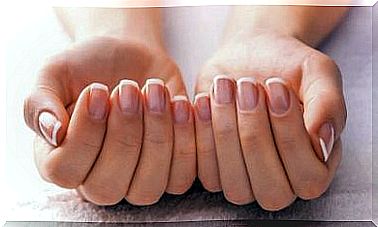5 Tips To Avoid Leg Cramps
Both excess and lack of exercise can be decisive for the appearance of cramps. One way to help your muscles stay in shape is to perform daily stretching, among other keys that we will discuss with you.

Also called muscle spasms, cramps are involuntary contractions that can lead to mild or severe pain and tightening of the muscles. For an athlete, knowing how to avoid cramps is essential.
Although they tend to be more related to athletes or the elderly, the truth is that anyone can suffer them. Therefore, below we tell you how to avoid them.
Why do cramps appear?
Those who have woken up in the middle of the night with severe pain in the calf, foot, or thigh know that there is no more horrendous way to interrupt sleep. In most cases, cramps are not harmful to health, they can be alleviated and especially prevented through stretching and changes in daily habits.
If the muscle cramps are regular and also appear during the day, it is recommended that you consult a doctor. The professional will tell you why they are and how to solve the problem.
Taking into account the previous clarifications, we can highlight that the causes of spasms are varied. According to an article published by the Journal of the Argentine Association of Orthopedics and Traumatology , the main ones are related to:
- Uncontrolled movements or excessive tension of the muscular tissues, either due to fatigue from excessive or repeated efforts or from remaining in the same position for prolonged periods.
- Insufficient or excessive intake of certain nutrients.
- Shortage of fluids or electrolytes in the body.
Beyond these causes, a publication from the Mayo Clinic specialized site also indicates that cramps may be due to a poor blood supply or compression of the nerves.
As for nutrient deficiencies, for example, dehydration leads to this problem, as well as not consuming an adequate amount of magnesium, calcium or potassium. Similarly, taking certain medications such as diuretics, antihypertensives, and beta-blockers can also cause cramps as a side effect.
Finally, in relation to the risk factors that predispose a person to cramps, the aforementioned Mayo Clinic article highlights the loss of muscle mass associated with age, pregnancy and nervous, liver and thyroid pathologies, as well as the diabetes.
How to avoid cramps?
Cramping episodes can last from a few seconds to a few minutes. For relief, it is often recommended to rub the affected muscle to relax it. Also, stretching in general and applying ice or a heating pad are good remedies in these cases.
If you have suffered from cramps more than once and want to reduce the chances of them appearing again, pay attention to the following prevention measures:
Hydrate yourself
The recommendation to comply with 2 liters of water per day is not a whim. With this amount, the body is hydrated and cells and organs can work accordingly. A study published by Hospital Nutrition affirms that the body can survive on less, but it is not convenient for this to be maintained.
To avoid dehydration, you can also choose to consume other liquids in addition to water. Examples of this are herbal teas and natural juices, although it is important not to add sugar.
In the case of practicing physical activity or during very hot summer days, it is recommended to increase the daily dose of water. You can also eat foods that are high in fluid content, such as tomatoes, cucumbers, and spinach.
Stretch to avoid cramps
It does not matter if you practice sports or not: it is always good to stretch your muscles at least once a day, since this way you can avoid cramps and muscle aches in general. This is a treatment method recommended by research published by Medicine & Science in Sports & Exercise .
The stretching exercises to be performed will depend on the affected muscle group and the physical capacity of each person. Consult with a trainer or physiotherapist to indicate the most appropriate for your particular case.
do exercise

Even if it’s a walk in the park or walking the dog a few streets, getting some exercise can be enough to avoid cramps. Biking, jogging or practicing yoga can also be other alternatives.
According to the article in the Journal of the Argentine Association of Orthopedics and Traumatology cited above, this allows the muscles to be stronger and more conditioned. Also, do not forget to stretch after finishing the exercise and decrease the intensity or duration of the training if you already perceive that the body is fatigued.
Eat a good diet

Nutrition is the foundation of health; If you eat well, you will have less chance of muscle spasms. To this end, choose foods that contain potassium, such as bananas, and magnesium — the seeds are a great source of this nutrient.
As we mentioned earlier, that is what experts consider essential to prevent cramps. However, to complete a balanced and healthy diet, a World Health Organization publication recommends consuming healthy foods such as fruits, vegetables and nuts, and leaving out refined flours, sugars and fried foods.
Wear proper footwear

Cramps often appear from a wrong footprint. For example, women who spend too many hours in heels or those individuals who do not have good shoes to exercise are often the most affected by spasms, because too much tension is generated in certain muscles, and they do not resist.
Therefore, try to choose shoes that allow you to support the soles of your feet well and that your calves do not have to make a huge effort to wear them. They are fine to wear for special occasions, but shoes for everyday activities should be comfortable.
Also pay attention to socks. If they are too tight, they can block the blood supply and excessively tighten the muscles, making them more vulnerable to cramps.
Take care of the muscles and you can avoid cramps
In short, all the above measures will help to avoid these particular and painful muscular discomforts. In addition, they will also allow you to have an active life without problems.
If you practice these guidelines and still experience frequent cramps, it is recommended that you consult a doctor. The expert will be able to assess whether there is a deeper cause that warrants another type of treatment.









